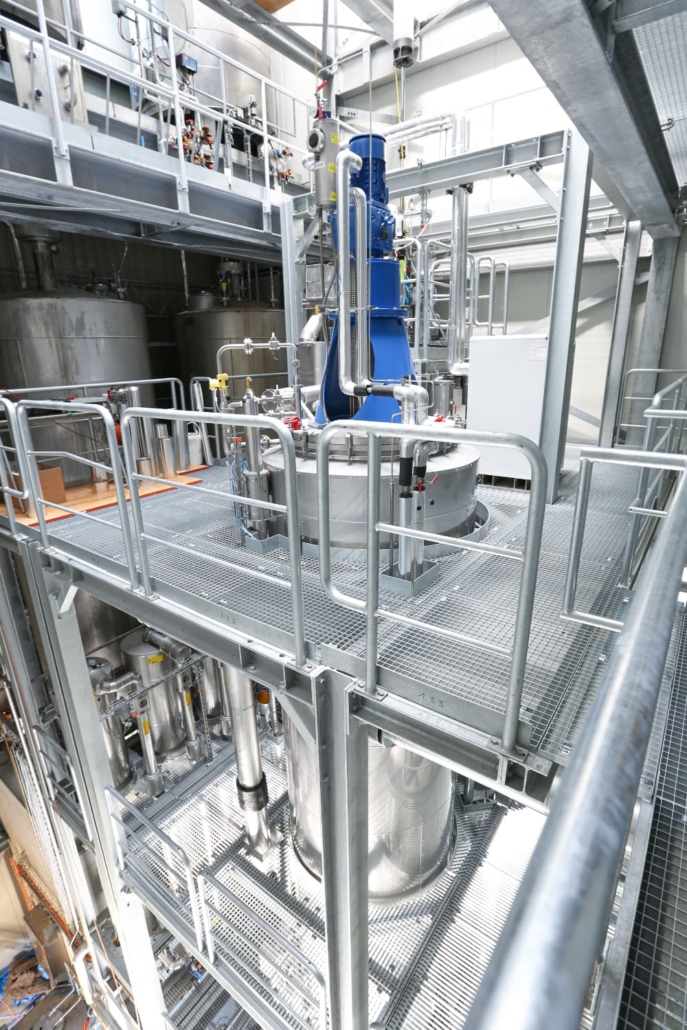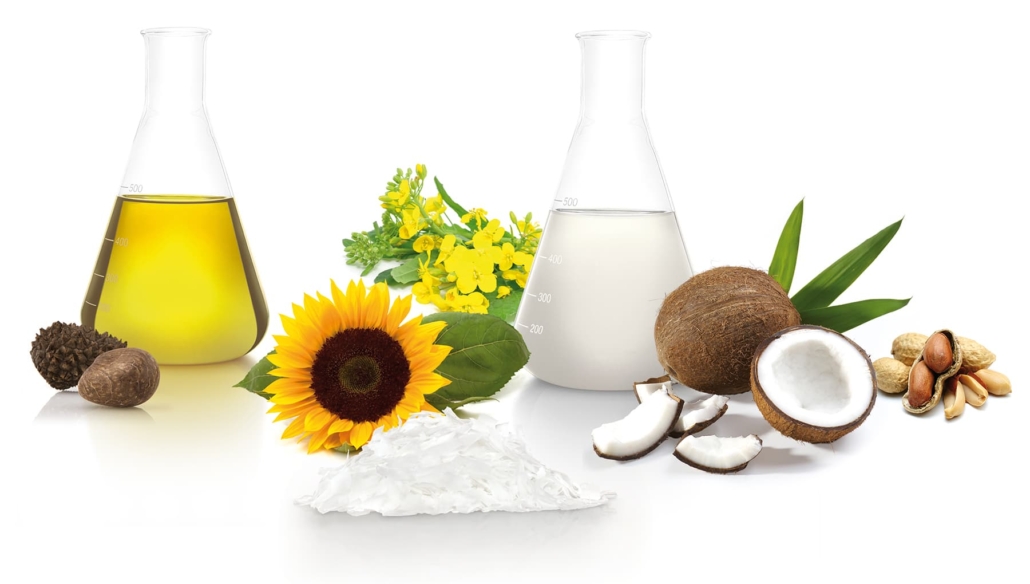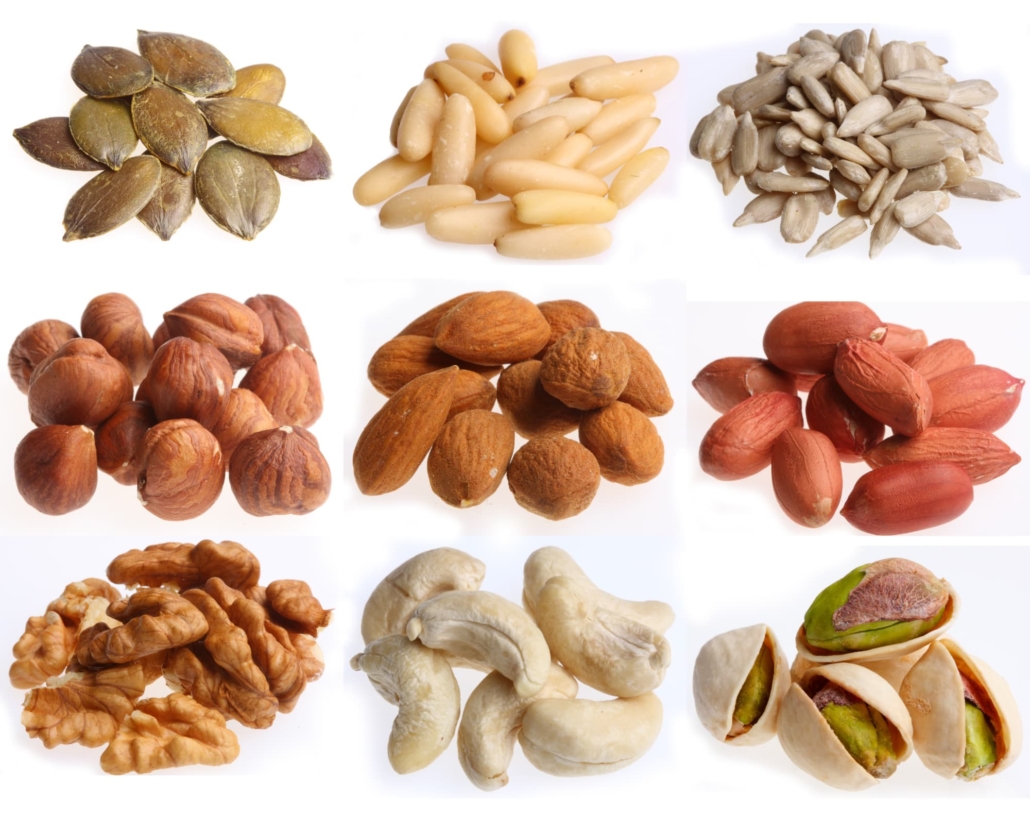Preserving and protecting valuable vegetable fats and oils
Nutriswiss uses innovative process technology to safeguard antioxidant content, remove contaminants and improve storage stability.

Frank Möllering, Head of Research & Development at Nutriswiss
Gentle refining not only preserves the natural ingredients of edible vegetable oils, but can also improve storage stability of fats and oils through precisely coordinated process steps. The protection of antioxidants, especially the γ- and δ-tocopherols, is essential. Here, practical experience has shown that short-path distillation produces raffinates with a better shelf life than classic deodorization, provided the process is carried out correctly.
Short-path or molecular distillation can be used to efficiently remove or significantly reduce contaminants in fats and oils. However, it is important that product quality remains stable or is even improved compared to conventional processes. Nutriswiss has therefore carried out extensive tests to determine the ideal process parameters for achieving this goal.
Short-path distillation is a continuous vacuum distillation process. It involves a scraper in the centre of a cylindrical evaporator distributing the oil in a thin layer on the heated wall of the evaporator. As the apparatus is in a vacuum of up to 10-3 mbar, volatile components such as pesticides and free fatty acids, as well as tocopherols, evaporate more easily under low thermal stress. They are then removed by the condenser, with the purified oil flowing off the evaporator wall. The evaporation rate is usually in the range of a few per cent; the temperature and pressure depend on the oil to be processed, and the range of substances to be separated. If the process is carried out correctly and the natural antioxidant components preserved, the stability of the oils is fully maintained. However, this requires extensive know-how and many years of experience.

Nutriswiss uses a short-path distillation to efficiently remove or significantly reduce contaminants in fats and oils.
Storage stability benefits from natural antioxidants
Tocopherols, commonly known as vitamin E, are divided into four forms. While the γ- and δ-tocopherols have low vitamin content, all have strong antioxidant properties. They are present in vegetable oils in varying concentrations and have a positive effect on the storage stability of fats and oils. They also provide protection against oxidation when heated, for example in frying oils. As valuable ingredients, tocopherols are therefore welcome not only from a nutritional point of view, but also for product stability during storage and in specific applications. Therefore, the more γ and δ forms retained or recovered by reactivation in the refining process, the better the storage stability of the oil or fat. The content of tocopherol forms also depends on the type of oil. For example, sunflower oil naturally contains more α-tocopherol and therefore has a higher vitamin E content, while rapeseed oil contains more γ and δ forms, and therefore has better antioxidant stability.

Tocopherols have strong antioxidant properties. They are present in vegetable oils in varying concentrations and have a positive effect on the storage stability of fats and oils.
Carefully controlled process preserves vitamin content
All stages of processing affect the storage stability of a fat, starting with the growing and harvesting conditions and storage of the oilseeds, followed by pressing and storage of the oil. During the actual refining process, the individual steps – from degumming, neutralization and bleaching to deodorization or molecular distillation – influence storage stability and tocopherol content. Depending on the process, antioxidants can be affected to varying degrees or essentially retained. However, much of the literature is still based on older studies that used high temperatures and process parameters that were not gentle on the product, especially for deodorization.
As a rule of thumb, between 20 and 50 per cent of natural tocopherols are degraded during fat refining. Some of these are removed with the separated fractions but, depending on the process, they may also be degraded or converted to other compounds through chemical reactions such as esterification. A large proportion of these antioxidants are removed at the end of the refining process by classic deodorization – a special steam distillation process. Molecular distillation also loses antioxidants along with fatty acids which are subsequently found in the condensate, but this process is much gentler on the product than deodorization and offers other advantages.
The goal is to preserve as much natural vitamin and antioxidant content in the oil as possible through carefully controlled processing. Experiments have shown that while tocopherols are lost in the refining process through separation or oxidation, regeneration or even an increase in tocopherol content is possible in certain process steps. This can be explained by cleavage of dimeric bonds between tocopherol molecules or ester bonds between tocopherols and other compounds. The step analyses, performed as standard at Nutriswiss after each refining step, revealed that in some cases even more tocopherols were found than were present in the original material. The refining processes have therefore been adjusted accordingly to take advantage of such effects.
Whereas up to 50% of the tocopherols were previously lost in some cases and no longer available in the end product, Nutriswiss now achieves no or significantly lower losses than the 20-50% mentioned. Frank Möllering, Head of Research & Development at Nutriswiss, sees great potential in this: “Our optimized process shows positive effects for all oils and this is a clear technological advantage for us. We have succeeded in preserving natural antioxidants through a controlled process.”
When unwanted byproducts such as pesticides, herbicides, insecticides, plasticizer impurities or mineral oil saturated and aromatic hydrocarbons (MOSH/MOAH) have to be separated from the crude oil by deodorization or molecular distillation, a loss of antioxidants cannot be completely avoided during this process. So it is better to remove these valuable components from the highest possible starting point than from a tocopherol content that has already been reduced by half. For optimal results, the refining process must be coordinated across all treatment steps, depending on the oil to be refined and its initial analysis values, and must be as gentle as possible on the product.

Raffination of nut oils must be operated in such a way that contaminants and other undesirable ingredients are largely removed, while a higher proportion of natural antioxidants and vitamins are retained.
Oxidation kept in check
In practice, Nutriswiss has been able to show that, despite this unavoidable reduction in tocopherol, storage stability is not affected by molecular distillation if the process is managed correctly. Storage stability measurements such as the determination of the peroxide number (POZ) and the TOTOX number, which record the development of primary and secondary oxidation products, or the Rancimat test, which shows the stability of fats against atmospheric oxygen in comparative tests, showed no negative effects of molecular distillation compared to conventional processes such as deodorization. On the contrary, time to the onset of oxidation, which is characterized by the formation of secondary oxidation products such as aldehydes, ketones and short-chain fatty acids, was significantly prolonged. As a result, POZ and Rancimat tests often yielded better results than conventionally refined oils. In a specific comparative test conducted by Nutriswiss with a palm oil fraction that had been conventionally processed and then either deodorized or subjected to a gentle short path distillation, it was clearly shown that the oxidation values of the sample from the short-path distillation increased much more slowly.
This is because secondary oxidation products are removed in a finer and more sustained manner than in the normal refining process. The oil or fat starts storage with a lower load of oxidation products and, at the same time, their formation appears to be delayed and reduced. Even though the underlying mechanisms of this observation have not yet been clarified, Frank Möllering is more than satisfied with the results of the mild refining process. “Our many years of expertise in oil refining are paying off here,“ he says. “Despite changing raw material properties and the balancing act between too weak and too intensive treatment, we have balanced the refining process to such an extent that we can preserve valuable ingredients and remove undesirable substances without impairing the stability of the end product.”
Nutriswiss AG operates its processes in such a way that contaminants and other undesirable ingredients are largely removed, while a higher proportion of natural antioxidants and vitamins are retained. Thanks to the gentle refining process, Nutriswiss fats and oils – depending on the type and batch – can be stored for as long or even longer than conventionally refined fats and oils. By carefully selecting and managing the process parameters, the valuable antioxidant ingredients are optimally protected and preserved.


